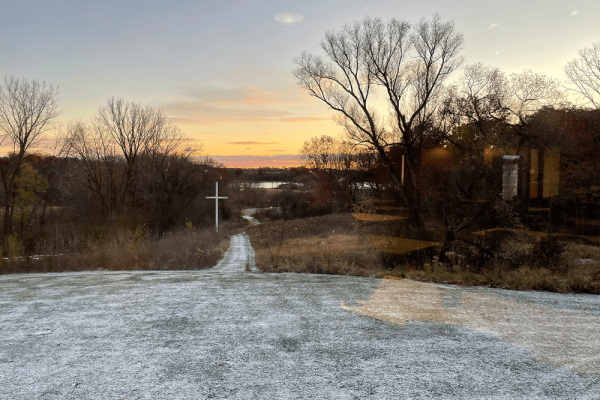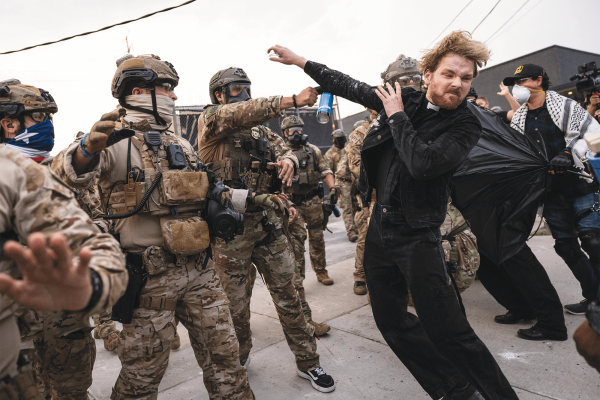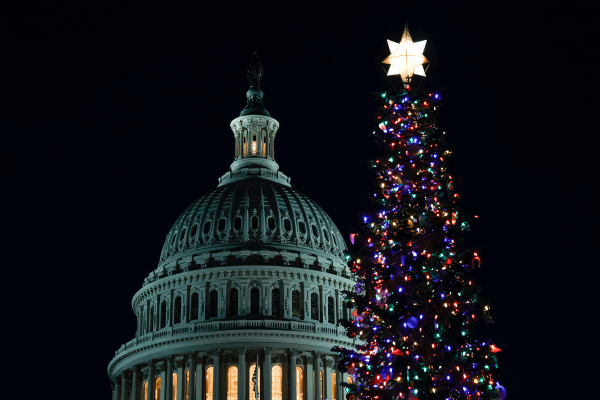Welcome to our world, abled people.
You are likely new here — this world of modifying and accommodating what you do each day and how you do it. Welcome to this disorienting space — the zip code occupied by disabled people like me and those of us living with chronic illnesses.
Whenever you’ve visited us here before, you’ve left as soon as you can. “Get well soon,” your cards say, even when we both know I’ll never meet your definition of well. You cheer when a disabled person with limited mobility walks down an aisle, but when we don’t walk, you’re no longer around. You say you want disabled people welcomed in the church, but if you mean that, then why aren’t you fighting for the Americans with Disabilities Act to be updated to include religious institutions? You probably didn’t know churches fought strongly to be excluded from ADA requirements until a disabled person told you about it. Our culture erases disability from our collective history and doesn’t even notice where our stories are missing.
During this pandemic, you’re farming for face masks, the N95 kind we need and hospitals use, and hospital gowns, too without noticing you’ve picked the field dry. Or maybe you’ve noticed but don’t care that a empty field endangers our health and the wellbeing of the medical professionals from whom you’ll want attention from if you get sick. You’ve ransacked other supplies, like the alcohol wipes some of us use for equipment changes and I use for weekly injections. You’re packing grocery stores to hoard items so it’s impossible to shop without close proximity to a hundred people or more — something so dangerous for us that stores are beginning to offer us specific times to shop and allowing you to continue shopping whenever you choose. Because of illness or disability, many of us regularly use grocery delivery services, but abled people are flooding them so much that the people who need them can’t access delivery times as needed or at all. The free market works fine, with some inconveniences, for you, while we’re disadvantaged. You’re shrugging off social distancing, deciding certain risks are worth it without realizing your acceptance of risk for you is volunteering death for us.
And we are dying.
Those of us most vulnerable have been sounding alarms for a while now. I pulled my children from school — one with HIV, one with cerebral palsy, and two with asthma, all high-risk categories according to the CDC — before my district or state made any decisions. We stopped attending church and small groups back in January because we saw the signs.
But we have been called dramatic well before our local communities and government at all levels started to realize that reacting to this pandemic promptly wouldn’t be an overreaction.
Sure, you’re frustrated that our president brushed this virus off at first but, when we spoke, you brushed it off when we knew it was an impending crisis. You didn’t listen. Or maybe your othering of those of us with chronic illnesses and disabilities has been so complete that our voices aren’t in your circles in the first place. Maybe this is the result of your performative inclusion, welcoming everyone to the table without noticing your table is inaccessible, without acknowledging that you really mean “all abled and healthy people are welcome at our table.”
Right now, I hear you talking about how the lives of vulnerable people are valuable. That’s a start. But we need to be valued.
We’re the canaries in the mine, sensing the danger before it comes, and I hope for all of us that next time you’ll listen sooner. Maybe we can all learn the words of Philippians 2:4, to not only look to our own interested but also to the interests of others, or Jesus’s command to love our neighbor as ourselves.
This virus has tanked our economy, but even so, disabled people are some of the hardest hit among us. To be disabled is to be poor. “But they’re always so happy,” you say about my most conspicuously disabled child, because casting us as happy makes you feel better. How could we be poor if we’re so happy? But to be human is to have a full range of emotions. Labeling us with only one feeling is dehumanizing, but it’s more dehumanizing to review the statistics showing disabled people who require accommodations to work are three times more likely to live in poverty with a more than 60 percent gap in employment rates. You can share stories of exceptions, but the norm is that poor people are more likely to develop chronic illnesses and people with chronic illnesses are more likely to be poor.
We’ve fought for so many of the rights that you are enjoying today. Disabled people fought for the right to accommodation of working remotely. Students are getting online educational access that disabled people have requested for years — often met with rejection — because disabled students fought for this option. You have what you have in this upside-down world because of us. Is it too much to ask that you make choices for us to have life? Would it be too much if my reason was only our shared humanity rather than what we’ve done for you?
We disabled and chronically ill people can humble ourselves to help you in your journey through our homeland if you can humble yourself to realize that we aren’t only the least of these but also the teachers and prophets.
I refuse to wrap sharp truths in soft blankets to make them easier for abled people to carry anymore. I’ve had to live it, you’re learning to live it, and padding the discomfort is performative at best. You’re here, in this land of change and uncertainty, and you need to see that we already lived here. You’re here, and you’re acting like abled colonialists. But this land is our land.
When the worst of this is over, you’ll go home to a world that has historically ignored us, and you’ll have a choice. Abled people can choose to remain rooted in the ableist nationalism that declares life, liberty, and the pursuit of happiness for only those who look, think, move, hear, see, and process information like you do. Meanwhile, we will continue to know our survival relies on your survival, so we will always be for you.
Someday I’m hoping you will also be for us.
Got something to say about what you're reading? We value your feedback!







